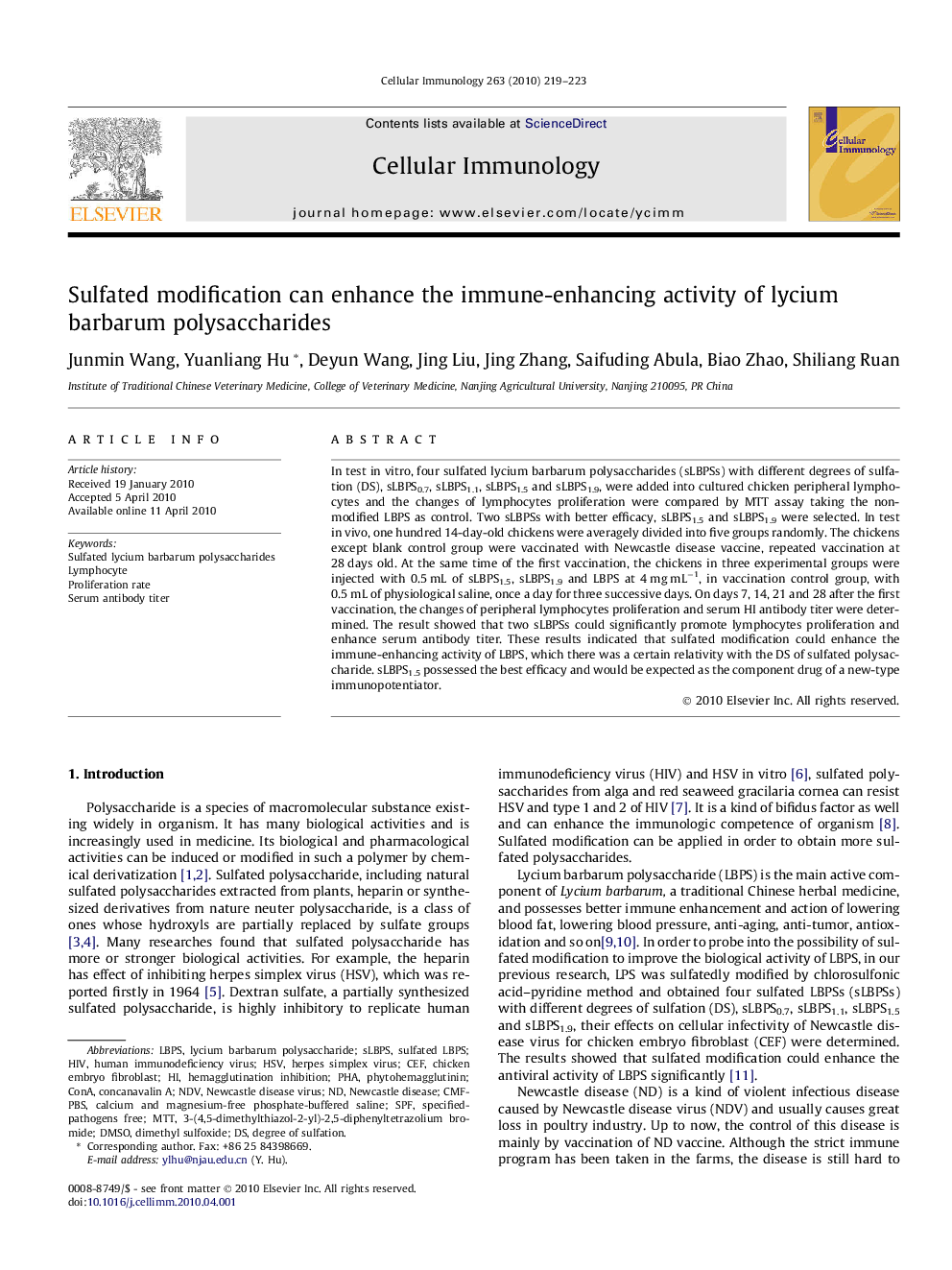| Article ID | Journal | Published Year | Pages | File Type |
|---|---|---|---|---|
| 2167594 | Cellular Immunology | 2010 | 5 Pages |
In test in vitro, four sulfated lycium barbarum polysaccharides (sLBPSs) with different degrees of sulfation (DS), sLBPS0.7, sLBPS1.1, sLBPS1.5 and sLBPS1.9, were added into cultured chicken peripheral lymphocytes and the changes of lymphocytes proliferation were compared by MTT assay taking the non-modified LBPS as control. Two sLBPSs with better efficacy, sLBPS1.5 and sLBPS1.9 were selected. In test in vivo, one hundred 14-day-old chickens were averagely divided into five groups randomly. The chickens except blank control group were vaccinated with Newcastle disease vaccine, repeated vaccination at 28 days old. At the same time of the first vaccination, the chickens in three experimental groups were injected with 0.5 mL of sLBPS1.5, sLBPS1.9 and LBPS at 4 mg mL−1, in vaccination control group, with 0.5 mL of physiological saline, once a day for three successive days. On days 7, 14, 21 and 28 after the first vaccination, the changes of peripheral lymphocytes proliferation and serum HI antibody titer were determined. The result showed that two sLBPSs could significantly promote lymphocytes proliferation and enhance serum antibody titer. These results indicated that sulfated modification could enhance the immune-enhancing activity of LBPS, which there was a certain relativity with the DS of sulfated polysaccharide. sLBPS1.5 possessed the best efficacy and would be expected as the component drug of a new-type immunopotentiator.
